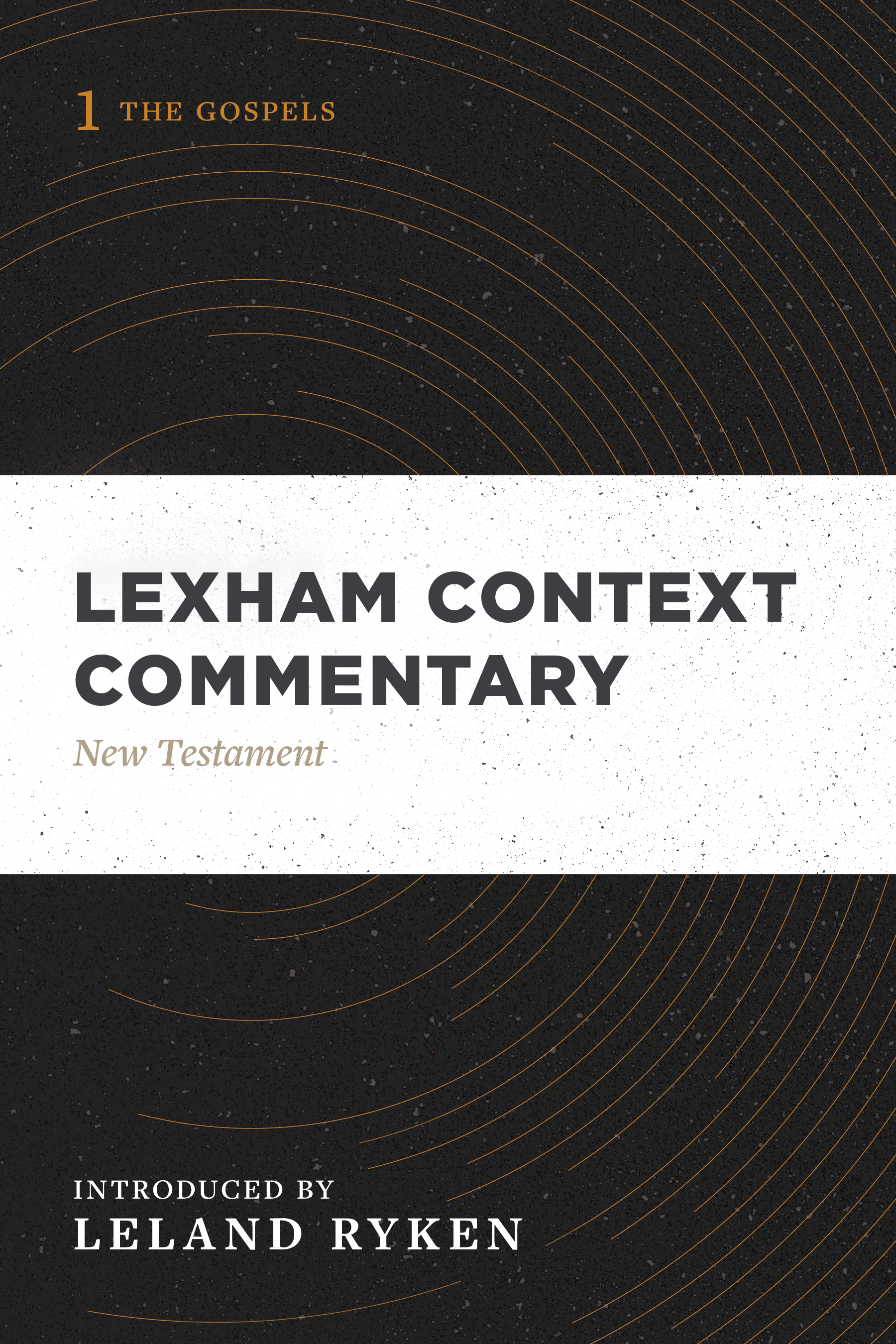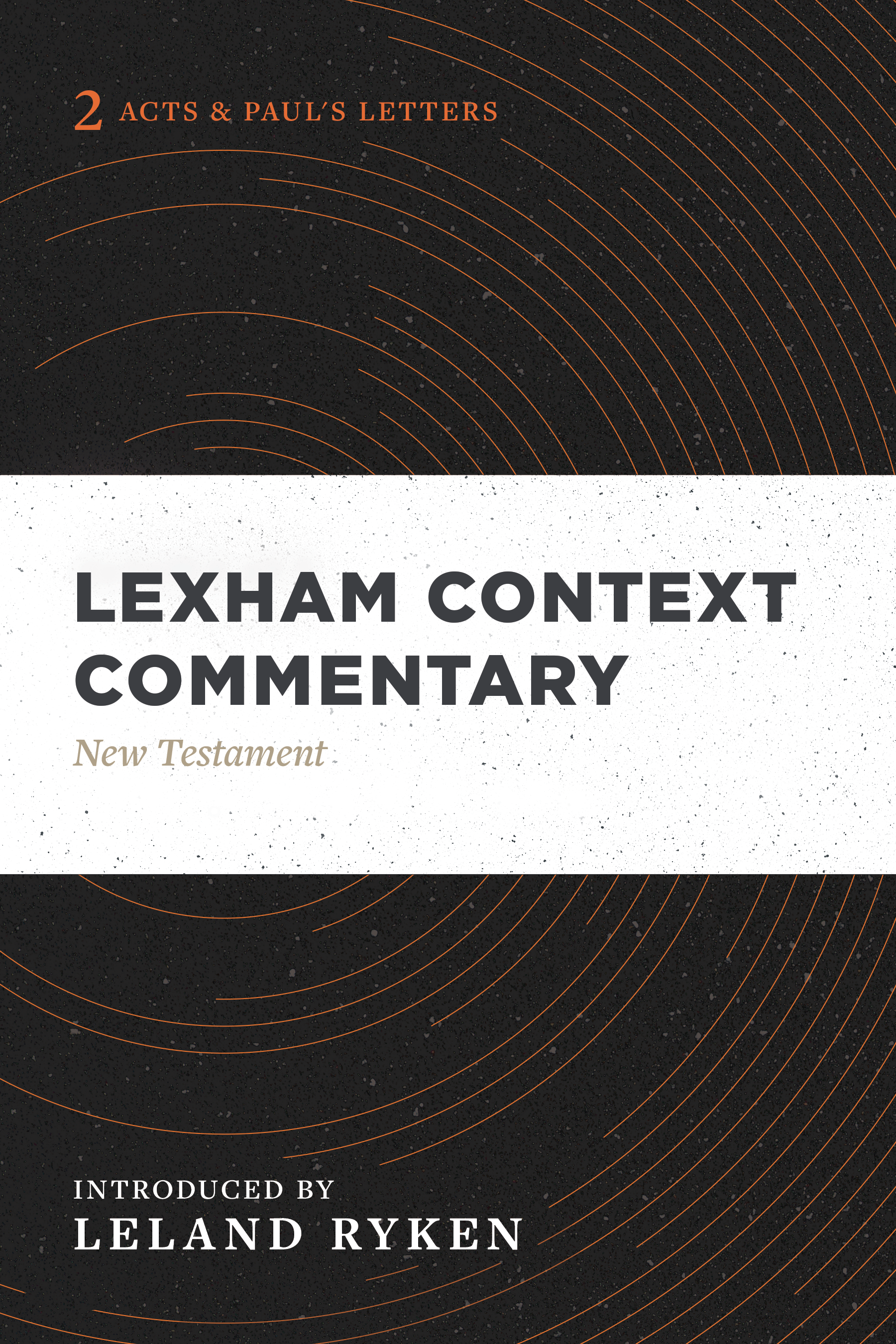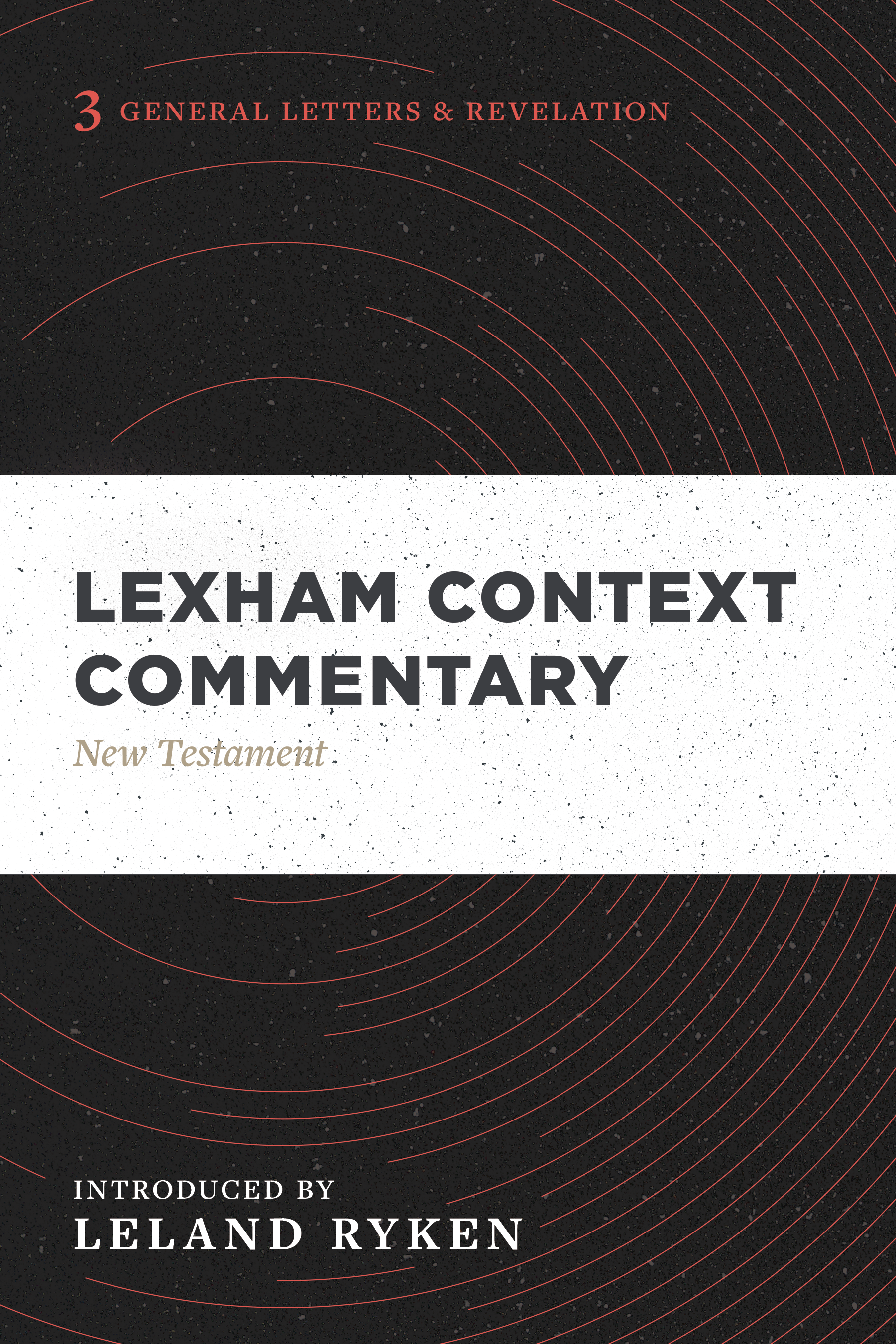Lexham Context Commentary: New Testament (3 vols.)
Digital Logos Edition
Never Take a Verse Out of Context Again
Seeing the thought flow of a given biblical text is essential to properly understanding its place within Scripture.
The Lexham Context Commentary: New Testament is designed to guide readers through the literary context of the Bible, especially the contextual thought flow at each level of a book’s organization. Each book of the New Testament is clearly outlined and structured, and commentary is provided on increasingly more specific segments of the text, from the book to its major divisions to sections to paragraphs to verses. Readers will gain quick access to the literary thought flow of a New Testament book at whatever level they wish to dip in.
Portions of Lexham Context Commentary: John are still in production. Your resource will automatically update with the remaining content as soon as it’s complete.
Access this title with a free trial to Logos*
Context is King
Traditional commentaries offer a wealth of information, but an explanation of the author’s flow of thought—how the parts relate to the whole—can get buried in detailed discussions of secondary literature, word usage, and historical background. The notes found in the Lexham Context Commentary deal with the text alone, leaving aside discussions of the opinions of other interpreters or of extra-biblical information from social, cultural, and historical background. The result is a concise, focused view of the biblical text that reveals the literary context of any given New Testament passage.
- Careful, Quick Summaries: Read a summary of any passage in the New Testament, no matter the size—from major divisions to paragraphs to verses. The Lexham Context Commentary is like a heavily annotated outline of the entire New Testament. Zoom in as close—or out as far—as you want, and you’ll get a short, reliable description of wherever you are.
- Introductions by Leland Ryken: Leland Ryken has long been at the forefront of “close reading”—of reading the Bible as literature. Ryken’s introductions will acquaint you with the major genres of literature in the New Testament, helping you read each book in keeping with what kind of book it is, from Gospel to epistle to apocalypse.
Top Highlights
“Paul wrote Ephesians to a gentile church in which believers are seeking to maintain their faith in the midst of physical and spiritual opposition (4:14; 6:11).” (Ephesians 1:1–6:24)
“The Beatitudes are descriptions of a state of being, not a promise of blessing. Each of these descriptions of a blessed state of being has different results.” (Matthew 5:3–12)
“The primary form of the Gospels is not the sermon or saying.” (source)
“The primary form of the Gospels is story, or narrative” (source)
“If we know how a given text operates in light of its generic traits, we know what to do with the text. Genre is like a blueprint, helping us to see what is before us in a text. Conducting genre analysis is one of the best ways to move beyond the merely descriptive level or plot summary or paraphrase with a biblical text. It is one of the greatest gifts of a literary approach to the Bible.” (source)
Product Details
- Title: Lexham Context Commentary: New Testament
- Editor: Douglas Mangum
- Publisher: Lexham Press
- Publication Date: 2020
- Volumes: 3
- Format: Logos Digital

Volume 1: The Gospels
- Publisher: Lexham Press
- Publication Date: 2020
Contents
- Introduction by Mark Ward
- Why We Need to Read and Interpret the Bible as Literature by Leland Ryken
- Reading the Gospels by Leland Ryken
- Matthew by H. Daniel Zacharias
- Mark by Thomas Parr
- Luke by David Crowther
- John by Douglas Estes

Volume 2: Acts and Paul’s Letters
- Publisher: Lexham Press
- Publication Date: 2020
Contents
- Reading the Book of Acts by Leland Ryken
- Acts by Mitzi J. Smith
- Reading the New Testament Letters by Leland Ryken
- Romans by Brenda B. Colijn
- 1 Corinthians by Alan B. Mangum and Thomas Parr
- 2 Corinthians by Christopher Watson and Thomas Parr
- Galatians by Katherine H. Burgett
- Ephesians by Micah Meek
- Philippians by Andrew Sutherland
- Colossians by Micah Meek
- 1–2 Thessalonians by Alan B. Mangum
- 1–2 Timothy, Titus, and Philemon by Christopher Porter

Volume 3: General Letters and Revelation
- Publisher: Lexham Press
- Publication Date: 2020
Contents
- Reading the New Testament Letters by Leland Ryken
- Hebrews by Josh Mathews
- James by Thom Blair, Thomas Parr, and Mark Ward
- 1 Peter by Paul A. Himes
- 2 Peter and Jude by Brian C. Collins
- 1–3 John by Lynsey Stepan
- Reading the Book of Revelation by Leland Ryken
- Revelation by David M. Minnick and Mark Ward
Reviews
5 ratings
Tony Gedwillo
11/15/2022
I have found this set to contain very concise and helpful comments. I'll read a number of commentaries, then finally come to this set, and find that it contains a lot of the most interesting points that the other commentaries mentioned but MUCH MORE concisely put. I would recommend this set to someone who is just looking to have one quick commentary to consult.
Top8305
6/10/2022
The superficial, insignificant gloss over the Bread of Life Discourse of John Chapter 6 in Volume 1 is as embarrassing as can be for a Scripture Commentary; as many things which can be done with it, ignoring it as though it's not the Word of God is not one of them. From Jn 6:23ff there is no healing or feeding, but the vital teaching of necessary things in soteriology, which was taught and believed from the beginning. Pax Christi
Billy Avery
6/18/2021
Randy
3/27/2021
The advertisement for this work implies regular commentaries are caught up in the minutiae of the text, without much regard for the larger context. I have not found this to be the case. In the places I've consulted the Lexham Context commentaries, they give about the same attention to context as my other sources. The second (and more important) issue I have with these, is their tendency to subject God's word to cultural relevance. When today's society doesn't like Biblical instruction, they have a fine way of setting aside God's word for the sake of man-made tradition. For example, the instruction not to let women teach or exercise authority over men in 1 Timothy 2:11-15, is effectively dismissed as some temporary, local issue that was only relevant to Timothy's audience at that time. The problem with this is the context bases the instruction squarely on God's design for men and women at creation, and woman's role in the fall, not on temporary, local circumstances. If employed consistently, we could dismiss any passage we don't like as irrelevant by this standard, and we wouldn't even need the Bible.

Rafe Andersen
3/3/2020
I love these commentaries! Please produce them in print. I want to get these volumes for my church elders.
Brian Poad
3/1/2020
does this book also come in paper form? just wondering? i'd like to also add this to my physical book collectionJ-P O
2/13/2020

Jonathan Bradley
2/8/2020
I really enjoy the commentary, especially the to-the-point information that it gives. It does not assume that "just because you are reading a commentary that you know ________" information that a lot of commentaries (and pastors and professors) assume. This is a commentary that I believe will help Christians at any point in their lives, whether they are in the pew, the classroom, or the pulpit. I'll write another review when I've used it more, however, from reading through James and Most of Romans, I really like what I see (and have learned).